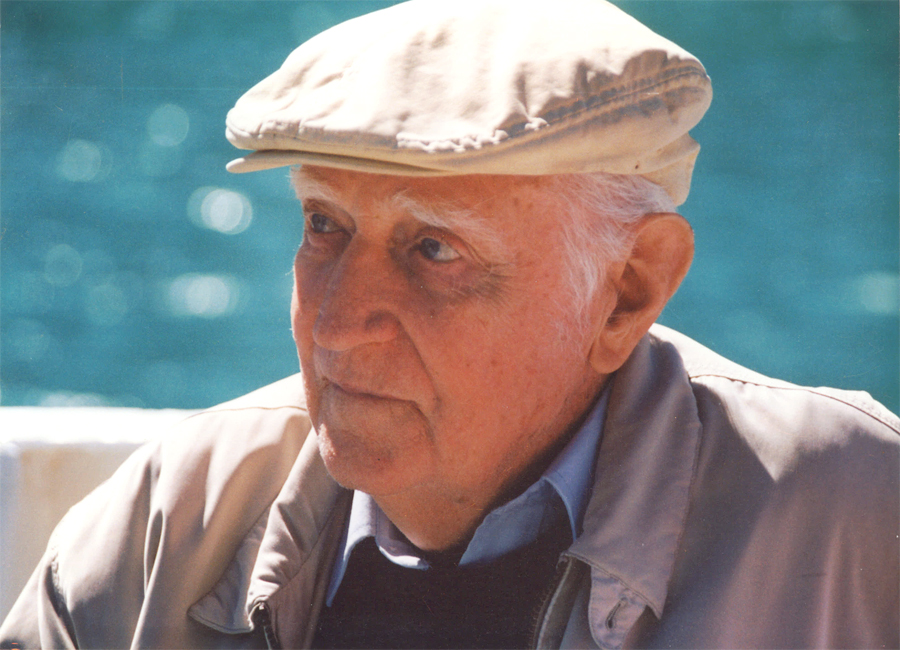Daniel McCall, emeritus professor of anthropology at Boston University, died at his Boston home on July 10. He and his wife, Dorothea (Pat) Morgan were longtime summer residents of Edgartown. Beloved by students and colleagues during his more than 30 years of teaching at Boston University, he also contributed seriously to the development of historical approaches in anthropology, besides living an interesting, indeed memorable life before joining academia.
According to his unpublished memoirs, he was born in March 1918 in Westfield. His mother died in the 1918 flu epidemic. About that time his father’s shoe store was defeated by the surging McCann shoe company, leaving his father unemployed and forcing Dan into a Catholic orphanage. During his residence in the orphanage during the 1920s Dan ran away to join his father no less than six times. During his later childhood a nun told him not to read a particular book and not to read books from the public library because they were sinful. That was too much for Dan, who valued the public library and moved in permanently with his father.
Graduating from high school in the 1930s in the depths of the Great Depression, he “rode the rails” around the country, eventually working on vegetable farms in Arkansas. About this time, the country was gearing up to withstand the Axis powers and he was drafted. He chose the Coast Guard.
Shortly thereafter the Japanese took the U.S. into World War II and the Navy quickly absorbed the Coast Guard. Dan joined the amphibious forces as a corpsman, which saw him fighting during four years of the Pacific war, attending to the wounded and dying, and somehow surviving. He survived three beach assaults, including Saipan and Kwajalein. He fought in the battle for Okinawa where his Navy ships withstood the attacks of kamikaze pilots. At another point his ship was torpedoed by the Japanese and had to be towed 4,000 miles to Hawaii with a gaping hole amidships.
Congress passed the G.I. Bill, thus sending this avid reader to Boston University for his B.A. and to Columbia University for his PhD in anthropology. At that time, Columbia had a leading department of anthropology and Dan took courses with outstanding scholars such as A.L. Kroeber and Joseph Greenberg. The latter was in the midst of revolutionizing historical linguistics in Africa with a classification of its hundreds of languages into four major (genetic) families, a taxonomy which has withstood numerous fierce attacks for half a century.
After his field work in Ghana, Dan joined Boston University in the 1950s and set out to establish a department of anthropology to go along with the new African Studies program there.
At Columbia University, Dan met the field research requirement of graduate programs in anthropology with field work in West Africa, on the Ashanti people or Twi speakers.
He also was interested in old connections between Africa of the Sahel or sub-Saharan Africa and the North African littoral or Mediterranean Africa. Twice he crossed the Sahara Desert from Algeria to Nigeria or Niger, once by Volkswagen and once by bus. He became an expert on trans-Saharan trade routes and historical contacts, especially between Greek, Carthaginian or Roman north Africa and sub-Saharan trading centers and kingdoms. Some of this research led to an interest in the origins and spread of chariots and charioteer warfare, leading eventually to an interest in the Indo-Europeans and their great success in chariot warfare. Nearly his last published work was a book review of David W. Anthony’s The Horse, The Wheel and Language: How Bronze Age Riders from the Eurasian Steppes Shaped the Modern World.
His last publication (at age 90) was an article on the diffusion of the concept of the seven-day week from ancient Babylon across the Saharan trade routes to the Akan cultures of the Guinea Coast of West Africa. This was the first publication of this interesting and surprising hypothesis. In Hot Pursuit of Language in Prehistory: Essays in the Four Fields of Anthropology, came out in 2008.
A memorial gathering is planned for September.


Comments
Comment policy »